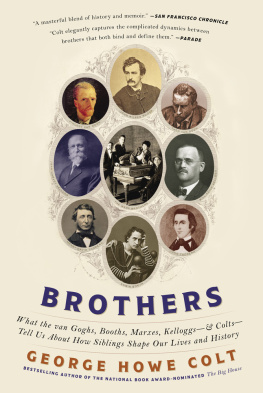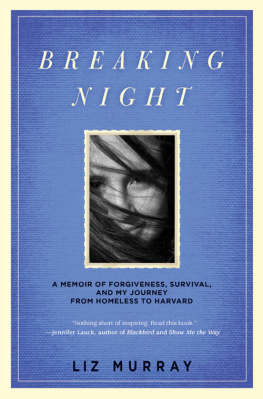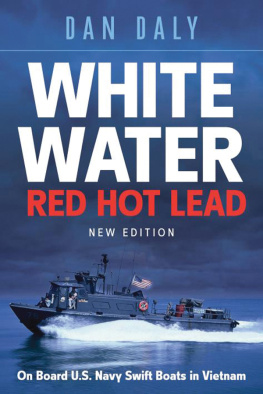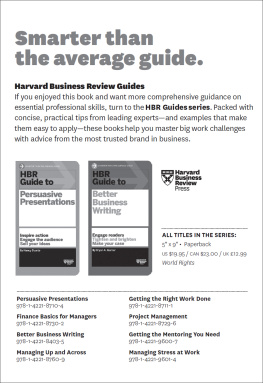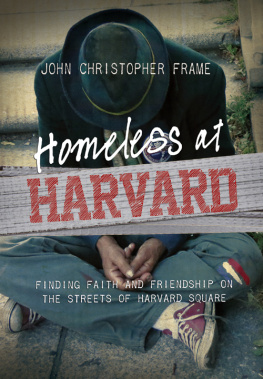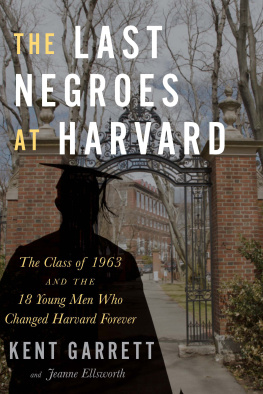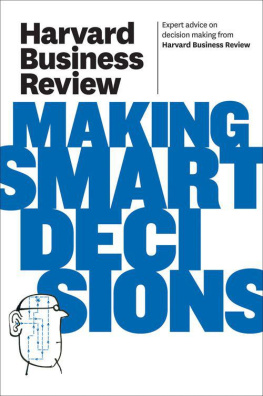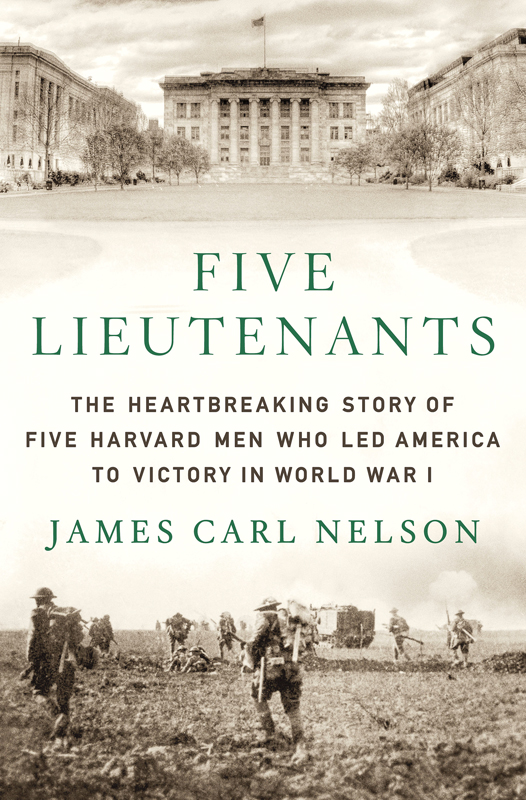
The author and publisher have provided this e-book to you for your personal use only. You may not make this e-book publicly available in any way. Copyright infringement is against the law. If you believe the copy of this e-book you are reading infringes on the authors copyright, please notify the publisher at: us.macmillanusa.com/piracy.
For Daniel Newhall
C ONTENTS
P REFACE
Unlike the Civil War, World War I, at least from the American perspective, is not known as a literary war. Draconian censorship Over There limited the doughboys abilities to describe their thoughts and experiences as they happened; diaries and journals were forbidden, lest they fall into the enemys hands. In any case, so many of the young soldiers were immigrants from Europe and other places and thus limited in English, or simply from hardscrabble backgrounds in the United States and limited in education, that they would have been hard-pressed to relay any erudite description of what they were going through.
I encountered this problem while researching my previous book, The Remains of Company D: A Story of the Great War . The letters I located from the enlisted men who served in Company D of the 28th Regiment, 1st Division, were often terse and devoid of any descriptions of actions, emotions, hopes, and fears and any accounting of where the soldiers had been. However, I noted early on that this was not necessarily so with the companys officers, who censored their own letters home, and I began a concerted push to find letters and writings from other young officers from the 28th Regiment to add context and a sense of immediacy to Remains .
In the end, I found more than I had bargained for; the result is Five Lieutenants , based on the voluminous letters and diaries of five Harvard-educated young men who were selected for service with the 1st Division in 1917and who encountered differing fates in the spring and summer of 1918 as America entered battle on the Western Front.
Its an account of their collective and individual journeys from Harvard Yard to Flanders Fieldsand, I hope, as full and complex a narrative of World War I as experienced by the doughboys as has ever been produced.
I would like to extend my deep appreciation to Robert Gould Shaw, a great-nephew of George Guest Haydock, for providing me Georges private diary. It was a key find and a key piece of the puzzle that became Five Lieutenants . Yes, hes a descendant as well of the famous and eponymous major featured in the film Glory; and yes, he has met its star Matthew Broderick.
I would like to thank Richard Newhalls son Daniel for his recollections and for his encouragement during the research and writing of this book. Thanks also to author Claire Douglas for her help and guidance in regard to William O. P. Morgan.
When I decided to pursue the story of Richard Newhall I was immediately presented with a problem: The material in the Williams College Archives and Special Collections had been packed away in anticipation of being relocated to a new library. Archivists Sylvia Kennick Brown and Linda Hall went out of their way to locate the dozen boxes I needed from the Richard A. Newhall Papers and have them ready for me when I arrived at the archives in August 2010. This book could not have been written without their kind help. Thank you, Ms. Brown and Ms. Hall.
Similarly, Eben Dennis, special collections librarian at the Maryland Historical Society, deserves a special shout-out for help in retrieving the papers and photos of George Buchanan Redwood.
Thanks also to Laurie Stein at the Lake ForestLake Bluff Historical Society for help with my research into the McKinlocks; Andrew E. Woods at the Robert R. McCormick Research Center; Phyllis Goodnow for her work at the U.S. National Archives in College Park, Maryland; Laurie Miller, Mireya Throop, and Barbara Koskie; and Michael Brophy for his help in the Harvard University Archives.
Of course, thanks to Marc Resnick, my editor at St. Martins, for his interest and patience, and thanks once more to my agent, James D. Hornfischer, for helping me whittle the possibilities for this, my second, book, and as well for his help in assembling the manuscript. Many thanks as ever to my wife, Janet J. Goodrich, and my boys, Ethan and Nathaniel; Dads ready to come up from the basement now
Eden Prairie, Minnesota
April 2012
M AY 28, 1918
S OMEWHERE IN F RANCE
S O THIS IS A BATTLE, he half-laughs to himself as he sits helpless and shattered in the bottom of a slit trench, his dead corporal oozing blood from half a dozen holes, shells landing about him, machine-gun fire peppering the ground, and men coming and going, rushing forward and falling back.
Thick chalky dust mingles with cordite; men yell, some screaming in pain, others with bloodlust, banshee cries welling from some unknown, dark place in their souls pushing them to action; individual duels, bayonet to bayonet, take place all across the field, macabre dances ending in a gush of blood and a battered, staved-in head. A few primitive French tanksanimals, the men call themwallow and emit thick black exhaust, some running over the prone forms of miserable and already dying doughboys, crushing legs and arms and torsos.
He thinks, fleetingly, of Haydock, and wonders if George has made it through the first German line; then the pain wells and takes over his mind. He sits helpless, shot through and through, nausea now coming in waves, his platoon moving on without him.
He wonders if anyone can see him. He wonders if anyone might come and help him. He wonders whether he will die, but he cant bring himself to pray.
Noise, confusion, dead bodies, and bloodhis own.
So this is a battle.
A R ENDEZVOUS
B RING OUT THE LIVER! the instructor shouts. Bring out the kidneys!
Parry, thrust, turnit doesnt matter that their enemy is made of cloth, the bayonets of wood.
Stick it in, turn it.
Kill.
Forty-six hundred young men work at the bayonet in the May sun, sweat darkening the unfamiliar khaki on their backs. Parry. Thrust. Turn. A cool breeze stirs occasionally from nearby Lake Champlain and then wafts away. A runty army regular screams commands and at times comes in close, so close they can smell the tobacco on his breath and feel his warm bark on the napes of their necks. Give it to him, he yells. Kill.
All morning they work at the bayonet, then turn to calisthenics, and after lunch there will be hours spent on signaling and the sighting of rifles, learning to balance the weapon in their arms and then slowly squeeze the trigger. After dinner they will work on skirmish drills and then hit the books to learn the armys many arcane rules and regulations.
Some will wash out today, some tomorrow, some in the coming weeks, and return to their civilian pursuits or stubbornly insist on enlisting as privates. The rest will carry on as best they can, intent on gaining a commission as a reserve officer, though many know not why exactly they have answered their countrys call in this spring of 1917 by applying for officers training camp at Plattsburg, New York.
Its a contingent made up largely of college boys, with the Ivy League well represented. Among these Ivy Leaguers are 350 Harvard men, a smattering of undergraduates and graduates, mostly young, well educated, and the progeny of some of the leading families in American society; many have been here before, turning out in droves to attend the 1916 Plattsburg camp and learn the rudiments of war-making.


